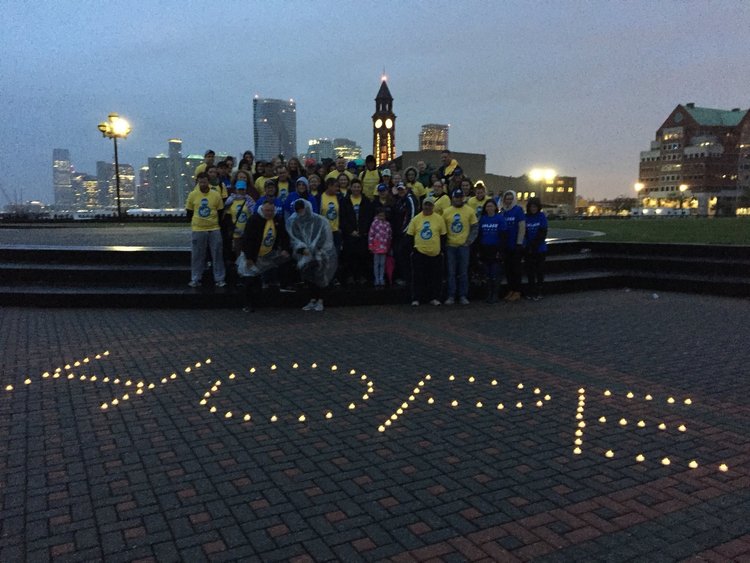By Bill Parry
When Mayor Bill de Blasio took office, he made fixing the culture of brutality on Rikers Island a priority of his new administration. He turned to 67-year-old Joseph Ponte, who had spent the previous three years remaking Maine’s prison system, and appointed him commissioner of the Department of Correction, putting him in charge of the city’s prison system and the nation’s second-largest jail.
“When I came through the door in April 2014, there was no overall plan ever,” Ponte said. “I had a picture that it would tax everything I had learned in my 40-plus years and that’s proven to be absolutely true. I’ve used every skill I’ve acquired over time. We’ve got an awful lot of stuff to fix in a short while.”
Two years later, Ponte, now 69, told the TimesLedger editorial board last week that he is “having fun” now that many of his reforms are taking hold. He said his 14-point plan to reduce violence and support the culture change at the DOC has had tangible results.
The use of force with serious injury dropped 23 percent department-wide in 2015 from 2014 as a result of better officer training and greater emphasis on conflict de-escalation while inmate assaults on uniformed staff with serious injury has dropped 11 percent in the same time span.
“The mayor said ‘I’m going to fix this’ and made it his priority,” Ponte said. “With this mayor and the City Council funding and support, we have the opportunity to do things and now a lot of people are engaged.”
The city has made a $72.5 million investment in equipment and gear to improve officer safety and another $23.5 million for training uniformed staff in new initiatives to reduce violence and improve leadership development and culture. The city has also allocated $51 million for the hiring of new Correction officers, with almost 1,000 currently in an 18-week training program at the DOC’s academy.
“I wouldn’t call that a reform. I’d call it a necessity. Twenty years ago the city had a hiring freeze and now were coming up on that 20-year-peak,” Ponte said. The turnover in personnel could have an added benefit in that new trainees learn about the Ponte reforms.
“Out with the old school and in with the new school and that’s healthy,” he said.
If the commissioner had limitless funds he would like better, more efficient jails with better sight lines, where officers could see everything unlike the current facilities. Ponte said 66 percent of the city’s jails “are past their lifetimes.”
“We haven’t done some basic maintenance,” Ponte said. “In one facility the locking system hasn’t worked in more than 15 years. Instead of an electronic lock they use a metal lever. That’s a safety hazard.”
Two weeks ago Ponte was quoted as saying he was open to shutting Rikers Island after Council Speaker Melissa Mark-Viverito (D-Manhattan) proposed such a plan in February.
“I was asked would I be interested in discussing the speaker’s proposal and I said I was open to having a discussion,” he said. “It’s a good discussion and I think we have to have it. That would be the mayor’s decision to make and right now he’s dealing with the affordable housing crisis.”
So Ponte is working with what he has and trying to change the culture at the prison, especially among the adolescent population.
“We’ve put a focus on 18- to 21-year-olds because they’re driving most of the violence at 30 percent,” Ponte said. “We’ve retrained officers and screened youthful inmates and let them live in a clean environment. Everybody’s buying into it, the inmates and the staff.”
Nearly 400 inmates are housed separately in Accelerated Program Units, where his 14-point plan is applied. Everyone works together and if the unit does well, each week they are rewarded with better programming.
“That’s the incentive and we’ve had great results in every measurable way,” Ponte said. There have been zero stabbings and slashings and “very few force incidents” since they opened.
Ponte knew when he first arrived two years ago that the approach to adolescent inmates had to be changed immediately.
“One thing I didn’t know is that in New York 16- and 17-year-olds are routinely incarcerated as adults.” he said. “New York is one of only two states in the nation that does that with 16-year-olds. These are kids. They’re tough kids but they are still kids.”
Ponte has instituted reforms to help mentally ill inmates, programs to help inmates re-enter society and lower recidivism and punitive segregation reforms. Ponte ended such solitary confinement for 16- and 17-year-olds in December 2014 and he will end punitive segregation for 18- to 21-year-olds in July.
When reminded of the June suicide of Kalief Browder, who was sent to Rikers Island at the age of 16 and spent 800 days in solitary confinement over three years, Ponte said, “He would not have been in punitive segregation” if his reforms had been in place.
Reach reporter Bill Parry by e-mail at bparr































